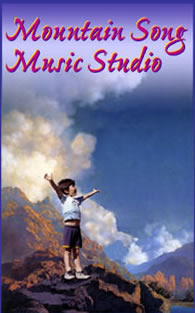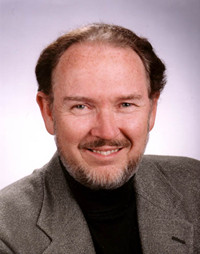 |
 |
 |
 |
 |
 |
![]()

|
An interview with Don Campbellby Jane Smolens M.Ed
The Mozart Effect Parents and educators in Boulder, Colorado are fortunate to have Don Campbell in our midst. A resident of Boulder and an internationally renowned researcher, educator and author, Don Campbell has had a profound influence in demonstrating the educational, transformative, and integrative propertiesof music. His most recent book, The Mozart Effect for Children, provides a wealth of information and insight into the development of the whole child. 
Mr. Campbell combines scientific research with experience in a magical, entertaining way that is accessible to parents and educators alike. The Mozart Effect for Children takes its readers on a journey through the developmental stages of the young child. Chapters such as Twinkle,Twinkle Little Neuron, Crawl, Reach and Clap, and Rhythms of Thought provide delightful examples of how music facilitates cognitive, physical, emotional and creative development in children. I had the wonderful opportunity to speak with Mr. Campbell, asking him to respond to some questions that are frequently asked of me as a music educator. Jane Smolens (JS): Many people associate the “Mozart Effect” with the music of Mozart and raising intelligence exclusively. Is this a complete interpretation? Don Campbell (DC): My book, The Mozart Effect for Children is about how children’s brains can be stimulated and grow with good music. The research shows that Mozart’s clear and exact music helps a child focus. This work shows that what goes in the ear builds the brain, communication, emotions and movement all at the same time. JS: Do you have any advice for parents who are looking to involve their children in music classes? DC: Music is entertaining and music is an art form. We are just beginning to understand the lifelong implications of the research.. Parents need to know that music and art games are not just gimmicks to help entertain your children. It is like watering a plant when it is young and if you don’t water it correctly it will never be able to use its full potential. We know there is a temporary shift of focus in the mind if we play music for older students, college students and adults. With young children it is absolutely magic. When language is combined with music and movement, there is a rhythmic experience that imprints the information in the mind. The child is receiving not only language but a joyous emotional experience and rhythmic coordination for the body. This is important through early childhood. JS: Any advice to give to music educators? DC: Music educators may not be educated in the auditory process of education. Presently, I give many classes on how the ear regulates balance, motor, and rhythmic coordination. Music is the perfect vitamin for brain growth. What you feed the ear modifies multiple systems within the body, and music has more vitamins than any other sound. Music works with our stress reduction, our sense of well- being and a way of releasing pain and tension. Music helps us communicate inner feelings to the world. JS: At what age is it appropriate for children to start individualized instrument instruction? DC: It depends on the family. If you have a house that already has a piano in it, if a parent or sibling plays then it is very natural for that child to explore the piano. If learning an instrument does not take away from the physical movement and enjoyment, wonderful experiences can happen from age four onwards. It is the joy of sharing a musical experience with a child through those preschool years where you are going to see an enormous benefit. JS: Any particular method that you advocate? DC: There are a thousand ways to make music with children. It comes down to the love and the enthusiasm of the teacher and the parent. What we are really building in the early years is building a heart, building an expression and building a tool for life. I think a Music Together™ or Kindermusik™ program and watching that child and letting them explore is wonderful. I am very encouraged with Suzuki programs because it trains the ear, cooperation, and it gives the parent and child a musical experience together. I am also a tremendous advocate of Orff-Schulwerk. I think Orff has the speech, the movement, the play, the poetry and the modal musicality. The important thing is not to be stuck as a parent or teacher thinking there is only one way to do it. JS: Recent research suggests that there may be differences in the male and female brain with respect to learning. Would this apply to music as well? DC: Music is the tool of integrating the brain. And in the early years not to make a more male or female brain is the point. But you make greater children through both hands, both brains and music connects these worlds. There’s probably nothing in the world after food, clothing, shelter and family that helps connect us and move us forward as a community as the arts. Truly, the “Mozart Effect” has come from that place. No matter what model you come in—color, compact, size, or how much gas you use, we are still this human instrument. And let’s play it! For more information on Don Campbell and the Mozart Effect visit www.mozarteffect.com or contact the Mozart Effect Resource Center at (800)- 721-2177. Jane Smolens teaches Music Together and Kindermusik classes in Boulder, Colorado. She can be contacted at (303) 413-1120 or (970) 495-1120, or at www.mountainsongmusic.com. Originally published by: |

